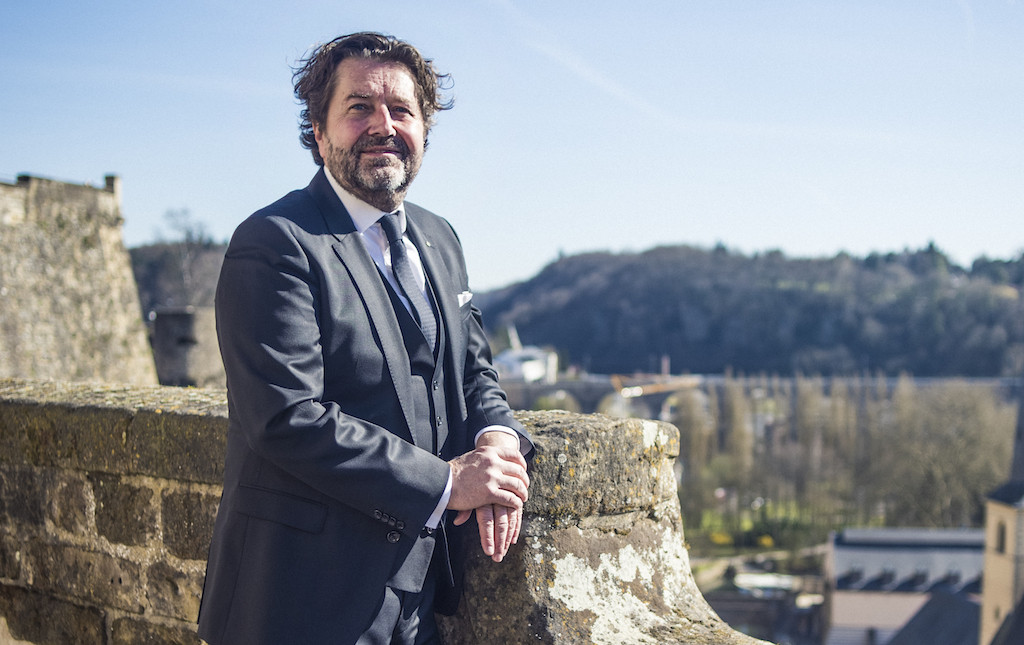When the bi-annual Lëtzebuerger Filmpräis was launched 16 years ago the organisers decided they couldn’t have too many categories, otherwise everyone would get a prize. “The sector has developed tremendously in the last few years,” says Film Fund director Daleiden. “For example, now more and more Luxembourg actors are starring in local productions and international co-productions.”
Previously actors had been grouped in with technicians in a category labelled “best artistic or technical contribution”, which has been won the last two times by cinematographer Jacko Raybaut for his work on Christophe Wagner’s prize-winning films “Doudege Wénkel” and “Eng Nei Zäit” (for which he shared the prize with actor Luc Schiltz from the same film).
Animated film on the up
The rise of animated film as an important sector within the Luxembourg industry (Luxembourg films won 5 prizes at the Annecy festival in June) has also led to the creation of a new category for the best creative contribution to an animated feature film for which animators, sound designers, set designers and script-writers from four films have been nominated.
Another new category is the prize for the best TV or new media production. This includes everything from German blockbuster production “Bad Banks”, already slated for a second series, to a-bahn’s experimental “Generation Quoi?” multimedia project and the animated children’s series “Ernest and Célestine, the Collection”.
“We could easily have separated this category, but then we would only have had two or three projects in each category,” Daleiden explains. “If that were the case, nobody would take the prize seriously.”
The nominations for the main prize, for the best Luxembourg film, shows how rich the creative side of the local industry has become. The films up for nomination include Govinda van Maele’s rural noir thriller “Gutland” (the favourite for the prize) alongside Andy Bausch’s senior citizen comedy “Rusty Boys”, Laura Schroder’s intense mother-daughter relationship drama “Barrage” and international cyber thriller “Justice Dot Net” as well as crime-caper “Toy Gun” and animated features “White Fang” and “Meng Kollegen aus dem Al”.
“We have never had so many Luxembourg films nominated for the prize,” says Daleiden. “It’s not just seven films, but seven Luxembourg directors. The Filmpräis is not just there to allow the industry to pat itself on the back and to celebrate the best films. It also showcases the current state of the industry.”
Victim of own success
That the industry is in rude health is evidenced by the fact Luxembourg films have been selected for, and have won prizes at, international festivals. “This shows that the selective method for financing that we currently have is producing quality.” Luxembourg produces around 20 feature films a year, out of around 1,800 made in Europe. “So if your films are being show in Berlin, Cannes and Annecy or wherever, that means something.”
It also indicates that the industry is growing because films only get financing help if they employ Luxembourg crew. But with more and more projects compete for a slice of the cake, an intense debate over how the finances are distributed was held earlier this year. “We won’t get more money to distribute, although maybe that will change after [the elections in] October,” says the film fund director. Negotiations with the industry representatives have reached an agreement that producers will have to learn to live with getting less state financing for each project, but the criteria for financing will also become more flexible. The Film Fund board still has to approve the details of a final deal.
So, as it gears up for the awards night on Saturday, the film industry can revel in being a victim of its own success. “That shows that we have done our job. The Film Fund is not just about making nice films that win awards, but to develop an industry so that people can live from film-making. Everything else is a bonus.”
